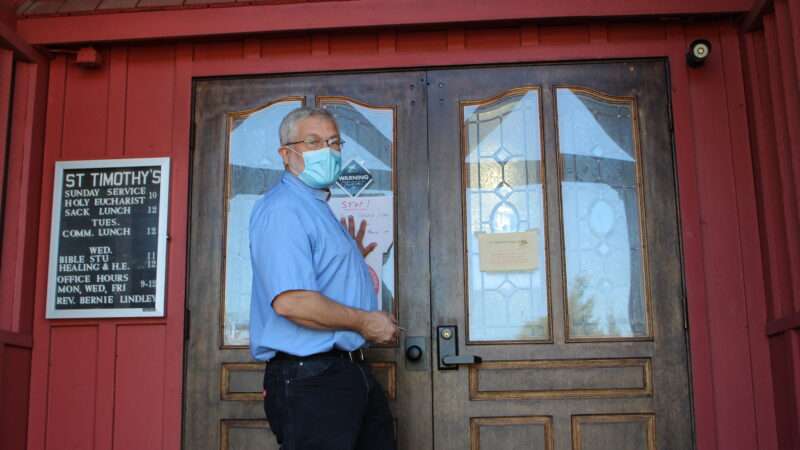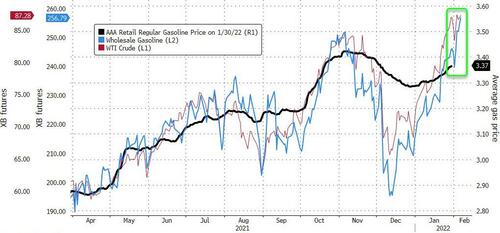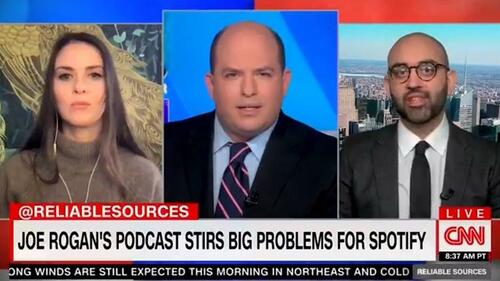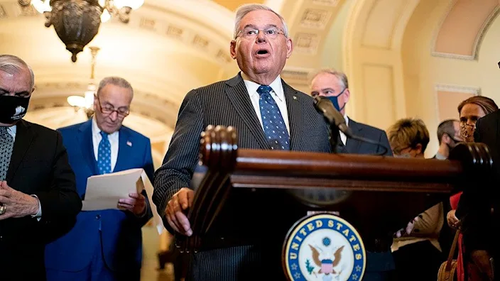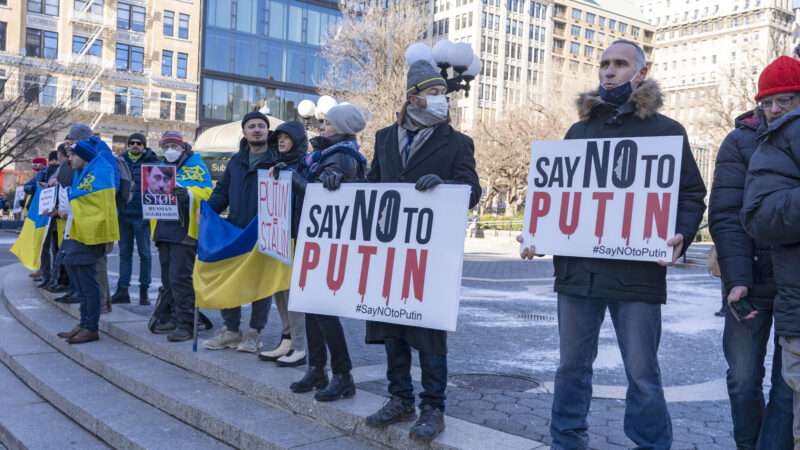
Three decades after Ukraine seized its independence from the crumbling Soviet Union, Russian President Vladimir Putin is insisting that Ukrainians are “essentially Russians.” In fact, about 10 percent of the Ukrainian population is Russian.
This type of rhetoric from Moscow is not new. But with Russian troops gathering at the border, Ukrainians are understandably anxious.
Kyiv may be Putin’s greatest sore spot, since he considers the Ukrainian capital the “mother city” of Russian history. He has even called Ukraine “an artificial creation of Soviet leaders”—a bold statement, considering the Soviets starved 3.9 million Ukrainians to death in the 1930s during the Holodomor.
“To Ukrainians, Russia has always been and remains an occupant—not a big brother,” counters Maria Chaplia, co-founder of Ukrainian Students for Freedom. Chaplia doesn’t deny that Russia and Ukraine have a shared past. But that doesn’t mean, she says, that the two countries must be conjoined in the future. She points to the most glaring example of disunion: the 2014 Revolution of Dignity, when Ukrainians overthrew President Viktor Yanukovych for refusing to sign a trade agreement with the European Union. (Russia had opposed the pact.) More recently, Ukrainians have torn down Lenin statues, changed the names of cities, adopted an Orthodox Church, and elevated their native language. In one sign of the times, the local edition of Elle recently announced that it would now publish in Ukrainian instead of Russian.
But Putin isn’t the only reason Ukrainians have been feeling nervous lately. He’s the chief provocateur, but the U.S. and the rest of NATO have unnecessarily escalated the conflict too.
Secretary of State Antony Blinken says that Russia could attack “at short notice.” President Biden believes such an invasion “would change the world.” Vice President Kamala Harris says Russian aggression “will be met with serious, severe, and a unified response and consequences.” Rhetoric like that prompted Ukrainian President Zelensky—the man they’re supposedly helping—to urge the U.S. to tone down the war talk. Gen. Mark A. Milley, chairman of the Joint Chiefs of Staff, reacted with more war talk: “I think you’d have to go back quite a while to the Cold War days to see something of this magnitude.”
The doomsday talk isn’t helpful. Zelensky is clearly grateful for the support his country has been receiving, but he is also warning the West against “inciting panic.” As Ukraine’s president, he stressed, “I’m located here. I know…deeper details.” The U.S. should not undermine Ukraine’s ability to chart its course by prematurely sounding the alarms. Panic is highly contagious, and Ukrainians don’t need another pandemic on their hands.
The post U.S. Rhetoric Is Making Ukrainians Uneasy appeared first on Reason.com.
from Latest – Reason.com https://ift.tt/KmWiyEN8H
via IFTTT
